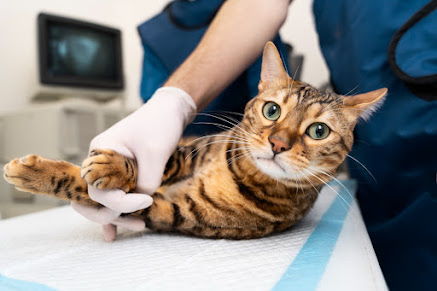How to Help Your Cat Live a Long and Healthy Life?
Cats have long held a special place in our lives as beloved companions. Whether you're a feline enthusiast or a curious pet owner, one of the most common questions that may arise is: "How long do cats live?" This query prompts a fascinating exploration into the factors that influence feline longevity. In this article, we delve into the average lifespan of cats, the various elements affecting their lifespan, and offer insights on how to enhance their quality of life for a longer, healthier existence.
Average Lifespan of Cats: On average, domestic cats live for approximately 13 to 17 years. However, it is essential to note that this is a general estimate, and individual cats can live longer or shorter lives depending on various factors. Furthermore, advances in veterinary care, nutrition, and lifestyle have contributed to an increase in the average lifespan of cats over the years.
Factors Influencing Feline Lifespan:
Genetics: Genetic factors play a significant role in determining a cat's lifespan. Certain breeds may be predisposed to specific health conditions that can affect their longevity. For instance, Persian cats are prone to polycystic kidney disease, while Maine Coons may experience heart conditions.
Nutrition: A well-balanced diet tailored to a cat's specific needs is crucial for their overall health and longevity. Providing high-quality commercial cat food or a properly formulated homemade diet can ensure they receive essential nutrients, vitamins, and minerals.
Veterinary Care: Regular veterinary check-ups, vaccinations, and preventive treatments for parasites (such as fleas, ticks, and worms) are vital for a cat's well-being. Timely identification and treatment of health issues contribute to a longer lifespan.
Lifestyle and Exercise: Providing a safe and enriched environment for cats to play, explore, and exercise is crucial. Indoor cats generally have longer lifespans due to reduced exposure to accidents, predators, and diseases. Engaging in interactive play sessions and providing scratching posts, climbing trees, and puzzle toys can help fulfill their natural instincts and keep them physically and mentally active.
Neutering/Spaying: The decision to neuter or spay your cat can positively impact their lifespan. Spayed females are less prone to uterine infections and have a lower risk of developing mammary tumors. Neutered males are less likely to engage in risky behaviors and are protected from testicular cancer.
Environmental Factors: Environmental elements such as exposure to toxins, secondhand smoke, and household hazards can affect a cat's lifespan. Maintaining a safe, clean, and stress-free environment is crucial to their overall well-being.
Disease Prevention: Vaccinations are essential in preventing common infectious diseases in cats, such as feline leukemia virus (FeLV) and feline immunodeficiency virus (FIV). Keeping up with vaccinations and practicing good hygiene can protect your feline companion from life-threatening illnesses.
Enhancing Feline Longevity: While we cannot control every aspect of a cat's lifespan, there are measures we can take to optimize their health and well-being:
Provide a balanced diet: Consult your veterinarian to determine the appropriate diet for your cat's age, breed, and specific health needs.
Regular veterinary check-ups: Schedule routine visits to ensure early detection of any potential health issues and to receive guidance on preventive care.
Exercise and mental stimulation: Engage your cat in regular play sessions, provide interactive toys, and create a stimulating environment to keep them physically and mentally active.
Dental care: Dental hygiene is crucial for maintaining your cat's overall health. Regular brushing and professional dental cleanings can prevent periodontal disease and other oral health issues.
Environmental enrichment: Create a cat-friendly environment with hiding spots, scratching posts, and interactive toys to stimulate their natural instincts and prevent boredom.
Stress management: Minimize stressors in your cat's life and provide a calm and safe environment. This includes ensuring they have a designated space to retreat to when feeling overwhelmed.
Conclusion: Understanding the factors that influence a cat's lifespan allows us to make informed decisions and take appropriate measures to promote their longevity. While genetics and inherent factors play a significant role, providing proper nutrition, veterinary care, and a stimulating environment can greatly enhance a cat's lifespan. By investing time, effort, and love into our feline companions, we can help ensure they live long, healthy, and fulfilling lives by our sides.






